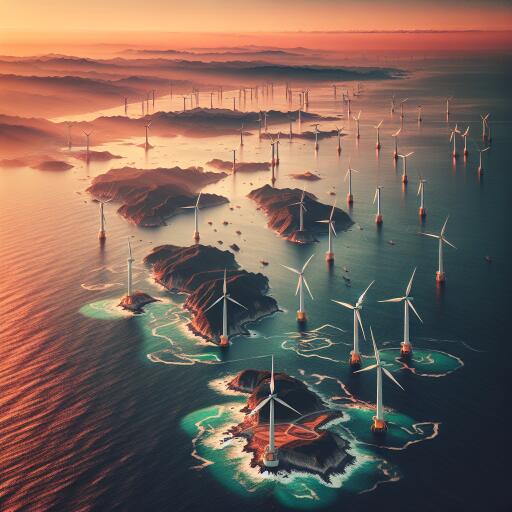Japan Expands Offshore Wind Reach to Exclusive Economic Zone
In a groundbreaking move to meet its carbon neutrality objectives by 2050, the Japanese government recently announced a significant step toward enhancing its renewable energy capacity. This was marked by the approval of a draft amendment designed to permit the installation of offshore wind power projects within its exclusive economic zones (EEZ). Japan’s resolve to transition away from fossil fuels, including coal and liquefied natural gas (LNG), is clearly demonstrated by this initiative, with a target set for acquiring 10 gigawatts (GW) of offshore wind power by 2030 and an ambitious 45 GW by 2040. A significant portion of this capacity is expected to come from floating offshore wind projects, which are crucial for tapping into the vast potential of deeper waters.
The amendment opens up new territories for renewable energy generation, extending beyond the current limits of territorial and internal waters. This move has been collectively supported by various governmental ministries, including the Ministry of Economy, Trade and Industry (METI) and the Ministry of Land, Infrastructure, Transport and Tourism. “This bill will pave the way for stable and large-scale offshore wind projects in our seas,” remarked Ken Saito, the Industry Minister. He emphasized that the legislation would catalyze the rapid expansion of offshore wind capacities in Japan.
International energy giants, such as Germany’s RWE and Spain’s Iberdrola, have been vocal in urging Japan to streamline its auctions and create more attractive investment conditions. This comes amidst a global surge in competition and costs for offshore wind resources. The calls have included appeals for the adoption of legislations governing EEZs—maritime domains where states hold rights over maritime resources without possessing territorial claim over the waters.
The proposed legislative framework for the EEZs delineates a two-step approval process distinct from that of territorial waters. Initially, the Industry Ministry will identify suitable areas for wind farm installations based on multiple criteria, including wind quality, water depth, and their proximity to territorial boundaries. Applicants will then receive preliminary approval, followed by an official nod after thorough consultations with all stakeholders involved, such as fishermen and shipping entities.
There’s a palpable sense of urgency as the government aims to enact the amendment in this current parliamentary session, which is due to conclude in late June. According to Masaki Higurashi, a director within the industry ministry, operations for the first EEZ project could take a decade to commence. However, the areas identified for installation could support several gigawatts of generation capacity, hinting at the massive potential of this initiative.
Japan’s current offshore wind capacity stands at less than 0.5 GW, with several floating wind farms under development, mainly for demonstration. The forthcoming EEZ legislation is anticipated to be a game-changer, opening doors for the development of floating offshore wind technology. This approach is considered pivotal in integrating large-scale renewable energy projects into Japan’s national grid.
The shift towards adopting EEZ for wind farm installations is not just a stride towards achieving energy sustainability; it’s a leap. It demonstrates Japan’s commitment to harnessing renewable energy sources, particularly offshore wind, to meet its environmental and energy security goals. With the new legislation, Japan is poised to make significant strides in the renewable energy sector, contributing to global efforts in combating climate change and fostering a sustainable future.
